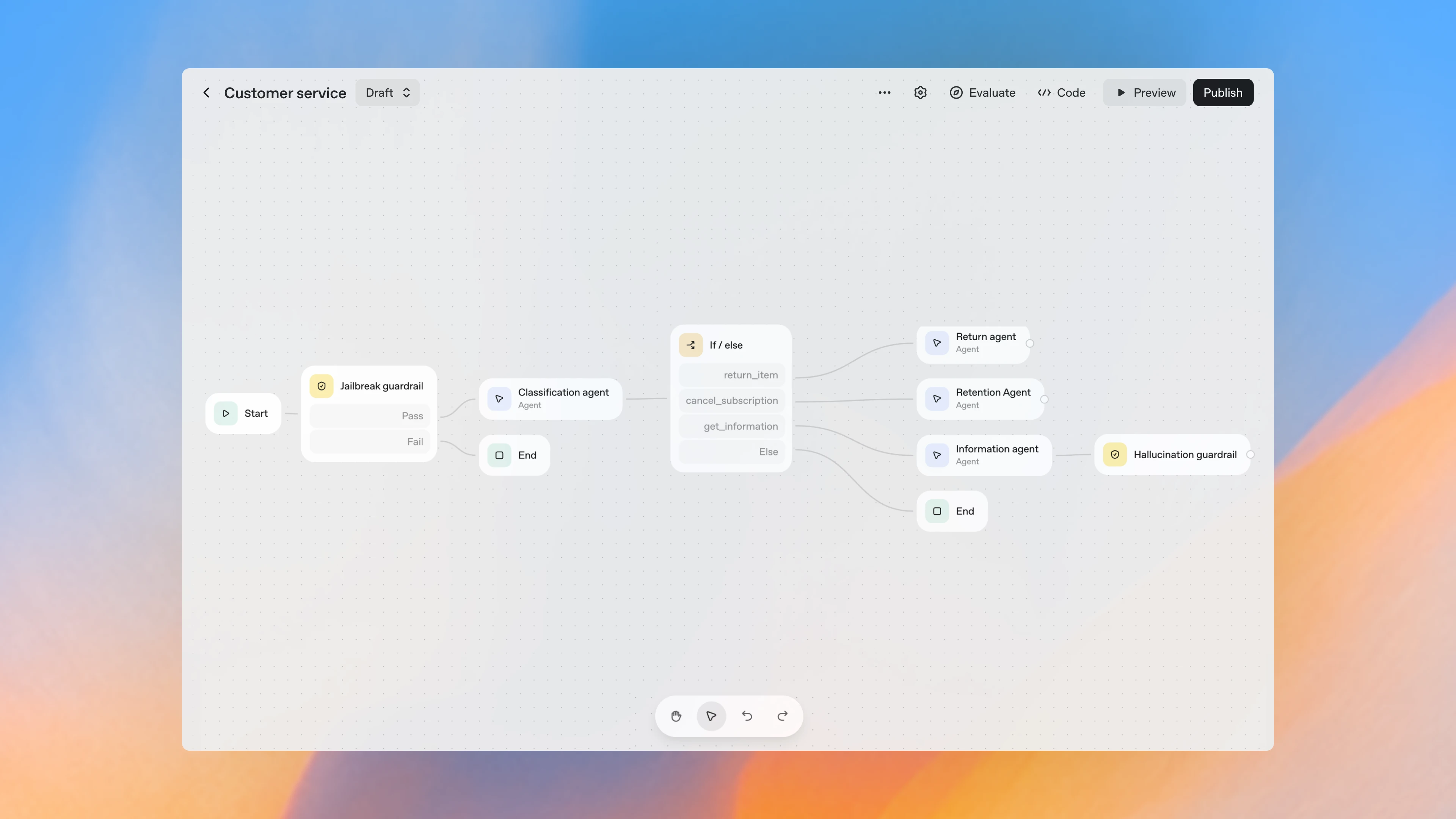OpenAI provides various SDKs for AI SW devs:
- standard AI API for request/response and chat, including support for "function calling/tools"
- Agents SDK with more advanced "AI Agents"
- AgentKit SDK integrated visual toolset for building Agents.
OpenAI Agents SDK TypeScript | OpenAI Agents SDK
OpenAI Agents SDK (python)
- Enough features to be worth using, but few enough primitives to make it quick to learn.
- Works great out of the box, but you can customize exactly what happens.
- Agent loop: Built-in agent loop that handles calling tools, sending results to the LLM, and looping until the LLM is done.
- Handoffs: A powerful feature to coordinate and delegate between multiple agents.
- Guardrails: Run input validations and checks in parallel to your agents, breaking early if the checks fail.
- Sessions: Automatic conversation history management across agent runs, eliminating manual state handling.
- Function tools: Turn any Python function into a tool, with automatic schema generation and Pydantic-powered validation.
- Tracing: Built-in tracing that lets you visualize, debug and monitor your workflows, as well as use the OpenAI suite of evaluation, fine-tuning and distillation tools.
new tools for AI "workflows"
Intro to Agent Builder - YouTube
I Tested OpenAI's AgentKit Against n8n: What You Need to Know - YouTube
OpenAI Update: Building Agents using NEW Agent Builder! - YouTubeAgentKit, a complete set of tools for developers and enterprises to build, deploy, and optimize agents.
- Agent Builder: a visual canvas for creating and versioning multi-agent workflows
- Connector Registry: a central place for admins to manage how data and tools connect across OpenAI products
- ChatKit: a toolkit for embedding customizable chat-based agent experiences in your product

